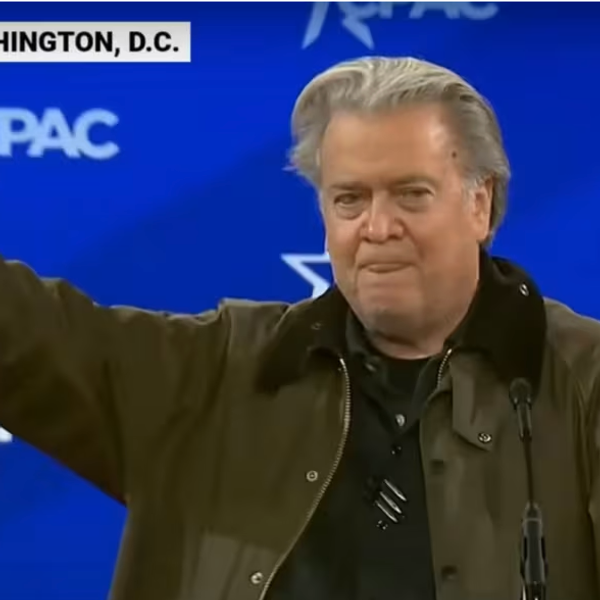By Dawn Rhodes, Chicago Tribune (TNS)
CHICAGO — Long before Chicago Mayor Rahm Emanuel tackled police accountability in an unusual speech before the City Council on Wednesday, demonstrators made it clear there was nothing the embattled mayor could say to calm the situation.
There was no mea culpa great enough, no promises convincing enough to satisfy hundreds of protesters who converged downtown in a vociferous rebuke of how he has handled issues of police misconduct, brought to the forefront in recent weeks by the controversy over Laquan McDonald’s shooting death in 2014.
They want Emanuel gone.
“This is not a black problem, this is a democracy problem. We don’t want your apology, we want your resignation!” one woman yelled.
Angelina Espindola, who lives in the city’s Pilsen neighborhood, dismissed the emotions the mayor displayed during his speech, calling them “crocodile tears.” She said she wanted to add her voice to the protests in part because she has a son who is Latino and fears for his safety when he gets older.
“I’m just really tired of turning on the news and seeing another innocent victim shot,” said Espindola, 28. “I’m tired of mothers crying. ‘Sorry’ isn’t going to bring those kids back. All (Emanuel) is doing is talking. Now he’s doing it because everyone’s paying attention.”
Protesters streamed through downtown, stopping briefly in front of City Hall, the Chicago Board of Trade and at Congress Parkway near Interstate 290, snarling traffic and causing some bus delays.
A line of police officers met the protesters at Michigan Avenue and Randolph Street but then allowed the group to march down the Magnificent Mile. They stopped at Wacker Drive for a moment of silence for victims of police violence and to insist that demonstrators remain peaceful.
“This is what Martin Luther King (Jr.) fought for. This is what Malcolm X fought for, 152 years after the Emancipation Proclamation, and we are still not free,” an organizer told the group as they held a brief sit-in at Wacker.
The protesters had barely begun marching down Dearborn Street when Lamon Reccord, a young demonstrator noted in part for staring down police officers tasked with supervising marches, began running down the street with several officers chasing him. The officers detained him briefly, pushing their way through a crowd of people who blocked their path as they tried to put Reccord into a police van. It was not clear what touched off the incident, but organizer Rousemary Vega said a man not part of the demonstration began taunting Reccord.
“It just shows that if you’re a black man in the city of Chicago, you’re found guilty before you go to a judge,” Vega said, crying. “Of course he ran away. There’s fear in our youth. They don’t trust the cops.”
The group surrounded the police unit parked on Dearborn and refused to move. After about 15 minutes, Reccord was released, and the group began marching through the Loop.
“Rahm, resign!” they chanted. “What did Rahm know, and when did he know it?”
Within minutes of the mayor finishing his 45-minute speech — at times going off script and appearing to choke up with emotion — dozens began demonstrating outside council chambers. Even as Emanuel pledged to give citizens opportunities to more freely voice their concerns and worries, his administration confirmed spectators had to be on a list to be allowed inside to hear the speech.
“Sixteen shots and a cover-up!” they chanted, the common rallying cry evoking the number of times McDonald was shot.
After many more viewed coverage of the speech on TV and online, the biting responses came swiftly.
“This speech probably made things worse for him with every constituency except for his lap dog City Council,” tweeted Mariame Kaba, founder and director of Project NIA, which works to end youth incarceration.
Claire Holohan, who recently moved to the Uptown neighborhood from St. Louis and is white, said that while she has not experienced negative police treatment, she wanted to support those who had.
“How can you not do something? How can you not say something?” she said. “You see it every day. You hear about it every day.”
Yael Hoffman, a social worker from Hyde Park, said she was moved by Emanuel’s speech but said the mayor’s contrition came too late.
“There has to be a symbol of change and there has to be a reality of change. (Garry) McCarthy is not enough,” said Hoffman, 44, noting the ousting of the police superintendent. “Laquan McDonald represented everything that’s wrong: He was a foster child, abused, had no future, then he was killed by the cops. The city should have taken care of him, and they did quite the opposite.”
While the ire seemed mostly directed at Emanuel, demonstrators similarly are demanding the resignation of Cook County State’s Attorney Anita Alvarez.
Many citizens and political leaders have taken aim at how Alvarez’s office has prosecuted police-involved shootings. She came under scrutiny last spring after a Cook County judge acquitted Detective Dante Servin in the fatal shooting of Rekia Boyd in 2012. The judge intimated in his ruling that prosecutors should have charged Servin with murder, not manslaughter.
Criticism of Alvarez grew when she formally charged Officer Jason Van Dyke with McDonald’s killing, but did so the same day the city released the McDonald video.
Jill Johnson, of Avondale, said she joined the protest because of her children.
“I don’t want my kids to grow up in an unjust Chicago,” said Johnson, 35. “The city’s been corrupt and it’s filled with racism, but people are like it’s business as usual. I think sometimes you have to throw your body in the way of business as usual. Rahm said some good things today but he’s going to sweep it under the rug unless we keep the pressure up.”
Photo: Activist groups take over RandolphStreet as a protest, Justice for Laquan, marches as the city council meets, Wednesday, Dec. 9, 2015 in Chicago. (Brian Cassella/Chicago Tribune/TNS)












